How AI Enhances Personalized Customer Interactions

Imagine being able to predict what your customers want before they even ask. That’s exactly what AI is doing for businesses today. By analyzing vast amounts of data, AI helps you understand customer preferences, predict their needs, and deliver experiences tailored just for them. For instance:
- 80% of companies plan to adopt AI-powered chatbots for customer service by 2025.
- 74% of executives believe AI will redefine how businesses approach customer experience.
- Businesses using AI report reduced costs and significant time savings.
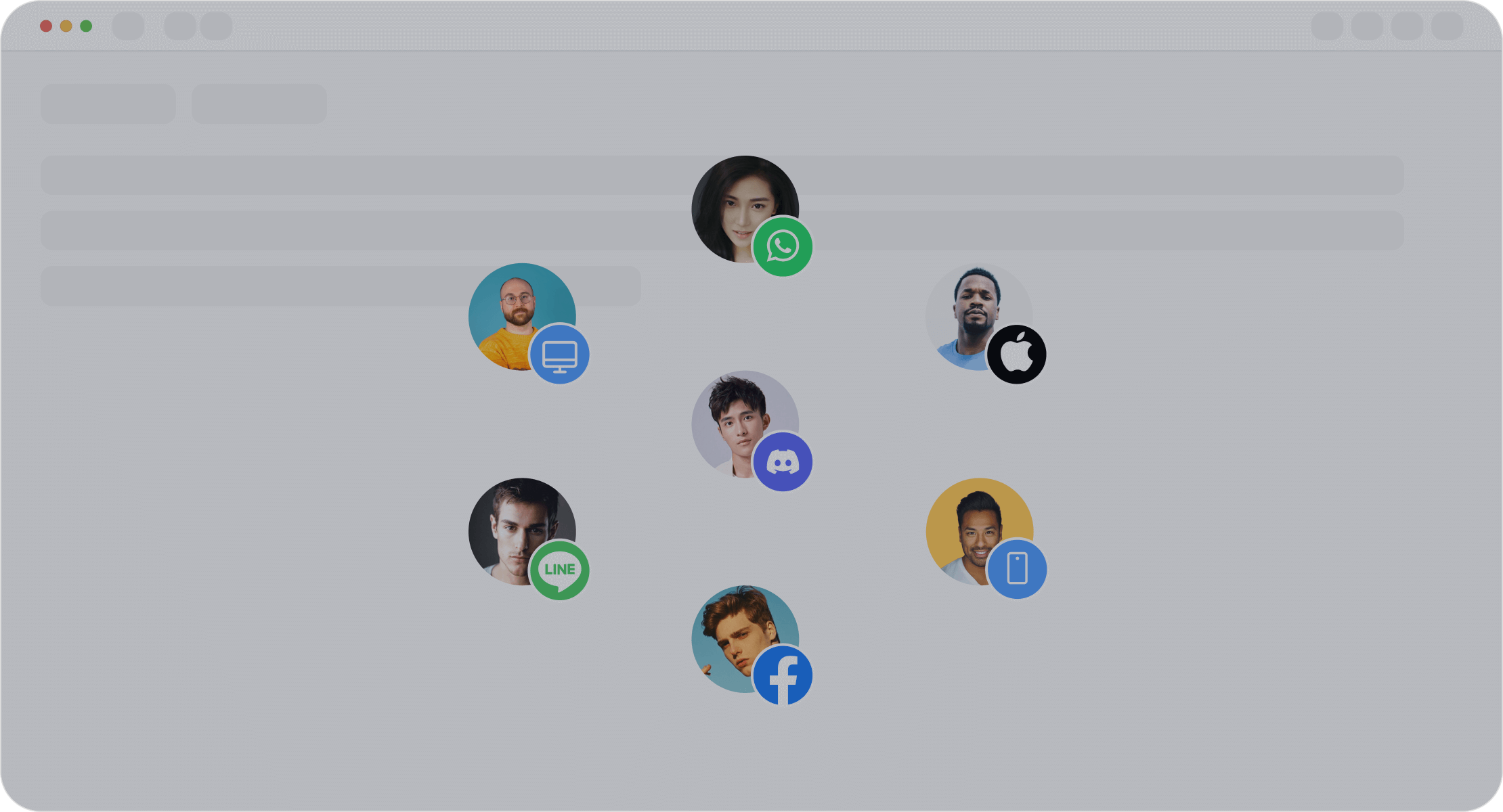
With tools like Sobot, AI is enhancing customer interactions and making personalized interactions a reality.
Understanding AI in Personalization
What Is AI Personalization?
AI personalization is all about creating unique experiences for each customer based on their preferences, behaviors, and needs. Think of it as having a personal assistant who knows exactly what you like and delivers it before you even ask. AI achieves this by analyzing data like browsing habits, purchase history, and even feedback to predict what you might want next.
For example, when you shop online, AI might recommend products that match your style or suggest deals based on your past purchases. This isn’t just guesswork—it’s powered by algorithms that learn from your actions. Businesses use AI personalization to improve customer satisfaction, loyalty, and engagement.

Sobot’s Live Chat platform takes this concept further by offering tailored interactions across multiple channels. Whether it’s through WhatsApp, Instagram, or a website, Sobot ensures every conversation feels personal and meaningful.
How AI Powers Personalized Interactions
AI transforms customer interactions by making them smarter and faster. It uses machine learning to analyze patterns and predict what customers need. For instance:
- AI can recommend products based on your browsing history.
- It can send personalized messages that resonate with your interests.
- It even helps customer service agents by suggesting solutions to common problems.
Imagine visiting a website and instantly receiving product recommendations that match your preferences. Or chatting with a virtual assistant that understands your questions and provides accurate answers. That’s AI in action.
Sobot’s AI-powered tools, like its Live Chat and Chatbot solutions, make this possible. These tools use AI to segment customers, automate responses, and provide real-time support. The result? Faster resolutions, happier customers, and stronger relationships.
The Role of Data in AI-Driven Customer Experience
Data is the backbone of AI personalization. Without it, AI wouldn’t know what customers want or how to deliver it. By analyzing large volumes of data, AI can identify trends, predict behaviors, and create tailored experiences.
Here’s how data enhances AI-driven customer experiences:
- Customer Insights: AI analyzes browsing habits, purchase history, and feedback to understand preferences.
- Predictive Analysis: It forecasts future needs, helping businesses stay ahead.
- Personalized Content: AI uses data to craft messages and offers that resonate with individual customers.
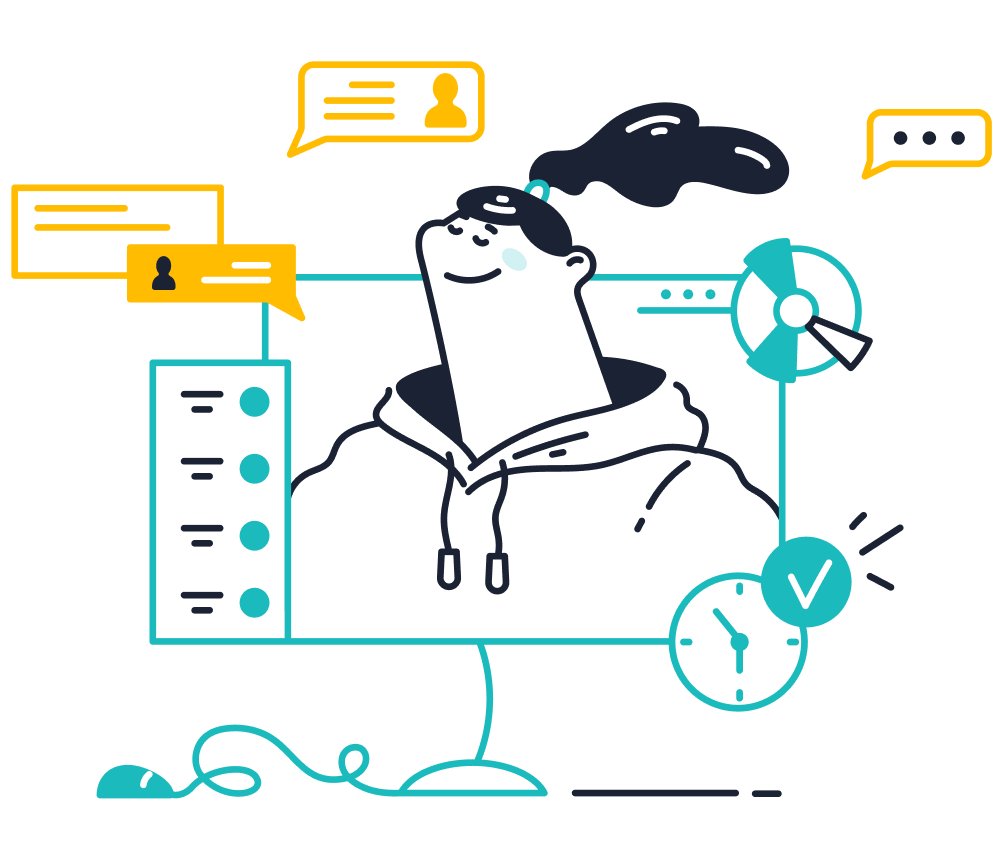
For example, Sobot’s Live Chat evaluates over 150 indicators to optimize service. It uses built-in analytics to help businesses make informed decisions and improve customer satisfaction. This data-driven approach ensures every interaction feels personal and relevant.
Tip: Businesses that leverage AI and data effectively see higher engagement rates and improved customer loyalty.
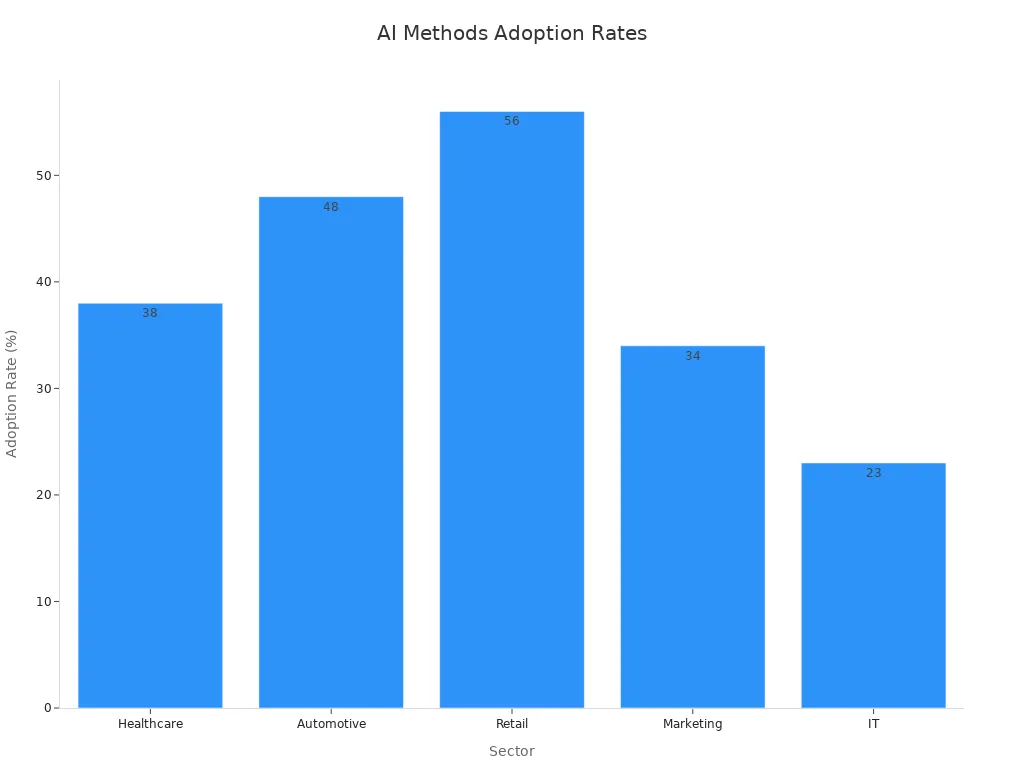
Benefits of AI in Personalized Customer Experience

Tailored Recommendations and Offers
AI personalization allows businesses to deliver tailored experiences that feel unique to each customer. By analyzing data like browsing habits, purchase history, and preferences, AI creates personalized recommendations that resonate with your needs. For example, when you shop online, AI might suggest products you’ve been eyeing or offer discounts on items you frequently buy. This isn’t just convenient—it’s transformative for customer engagement.
The numbers speak for themselves. Companies using AI for tailored recommendations see a 4.3% increase in conversion rates and a 7% boost in online sales within just three months. Businesses also report a 220% return on investment, proving that effective personalization drives results. Imagine receiving real-time recommendations that align perfectly with your style or interests. That’s the power of AI-enhanced customization.
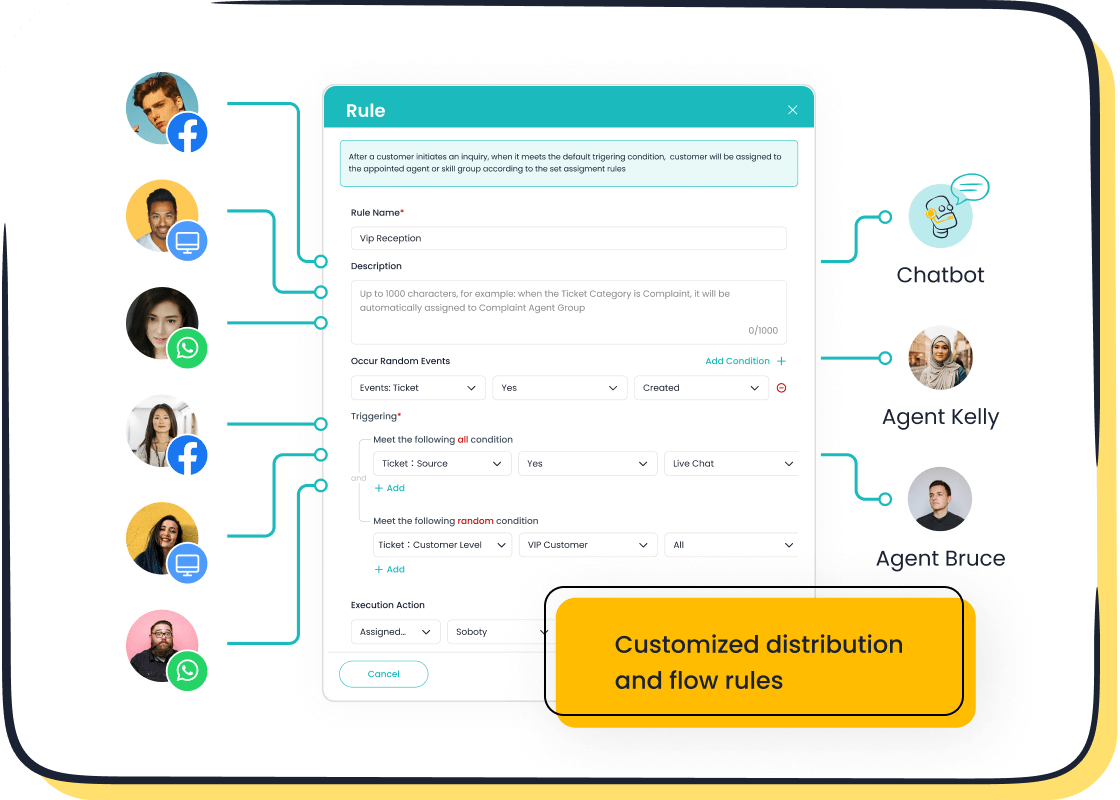
Sobot’s Live Chat takes this a step further by integrating AI to provide real-time recommendations during interactions. Whether you’re chatting on WhatsApp or browsing a website, Sobot ensures every suggestion feels relevant and timely. This approach not only improves customer satisfaction but also builds loyalty by making every interaction meaningful.
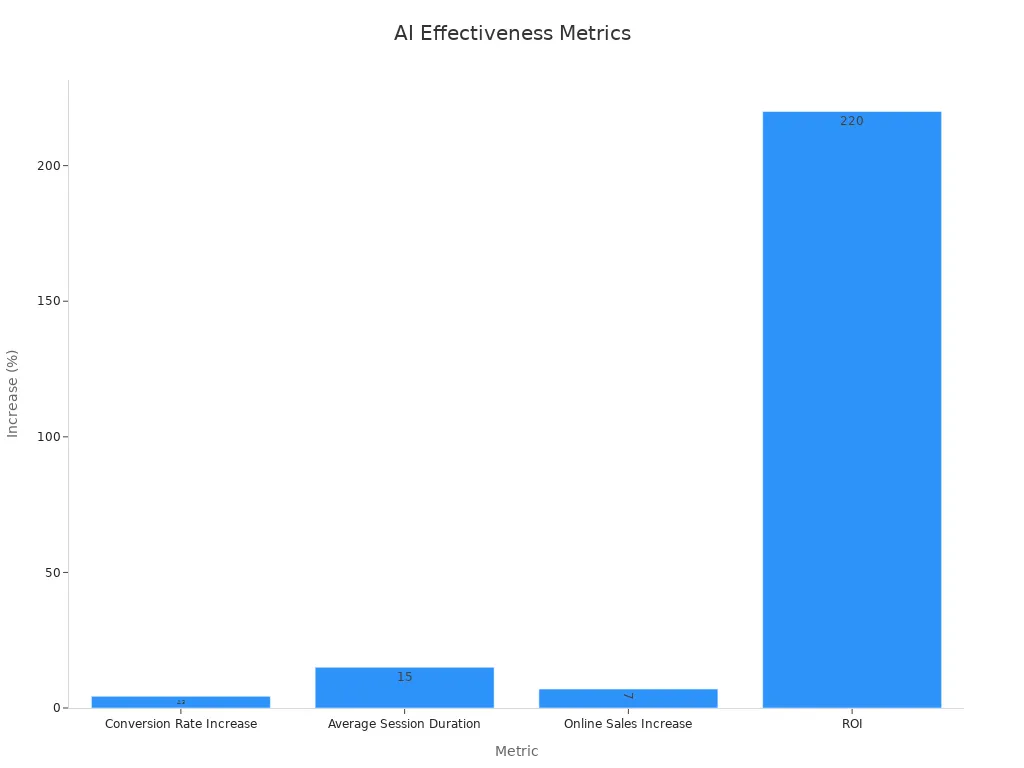
Tip: Businesses that prioritize AI-driven personalization can achieve up to 25% revenue growth, as reported by IBM.
Dynamic Content and Messaging
AI doesn’t just stop at recommendations—it also powers dynamic content and messaging that adapts to your behavior in real time. Have you ever received a notification or email that seemed perfectly timed? That’s AI working behind the scenes. It analyzes your activity and sends messages that feel personal and relevant.
For instance, a food delivery app might send you a promotion right before dinner, or a fitness app could suggest workouts based on your recent activity. These tailored messages keep you engaged and make your interactions with brands more enjoyable. In fact, AI-powered campaigns see a 41% increase in engagement compared to traditional methods.
Sobot’s AI tools excel in this area by enabling businesses to craft dynamic messages across multiple channels. Whether it’s a push notification, email, or chat message, Sobot ensures the content aligns with your preferences. This level of customization not only boosts engagement but also strengthens your connection with the brand.
Example: A media streaming app using AI might suggest curated playlists based on your listening history and the time of day. This creates individualized experiences that keep you coming back for more.
Enhanced Customer Support with AI Tools
AI has revolutionized customer support by making it faster, smarter, and more efficient. With AI tools like chatbots and virtual assistants, businesses can handle inquiries 24/7, ensuring you get the help you need when you need it. These tools don’t just answer questions—they provide solutions tailored to your specific issue.
Studies show that support agents using AI can handle 13.8% more inquiries per hour, improving both efficiency and customer satisfaction. AI also assists agents by suggesting responses, summarizing conversations, and automating repetitive tasks. This allows human agents to focus on complex issues, ensuring you receive high-quality support.
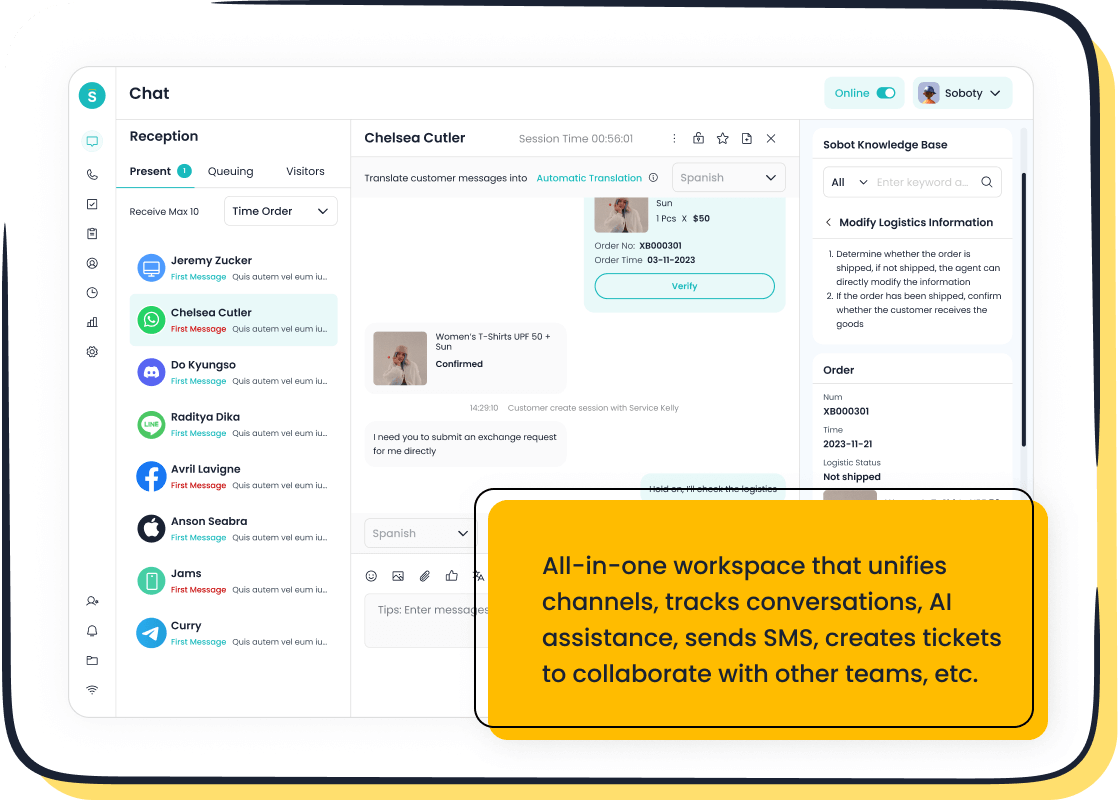
Sobot’s Live Chat and Chatbot solutions are perfect examples of AI-enhanced customer support. They combine AI-driven insights with real-time assistance to deliver personalized services across various channels. Whether you’re reaching out via Instagram or a website, Sobot ensures your experience is seamless and satisfying.
| Study | Description | Improvement |
|---|---|---|
| 1 | Support agents using AI | 13.8% more customer inquiries handled per hour |
| 2 | Business professionals using AI | 59% more business documents written per hour |
| 3 | Programmers using AI | 126% more projects coded per week |
Note: AI-driven customer support not only improves efficiency but also strengthens trust by providing consistent and accurate solutions.
Boosting Customer Loyalty and Retention
Building customer loyalty isn’t just about offering great products. It’s about creating meaningful connections that keep customers coming back. AI personalization plays a huge role in making this happen. By understanding customer preferences and delivering tailored experiences, AI helps businesses foster trust and loyalty.
How AI Personalization Strengthens Loyalty
AI personalization makes every interaction feel unique. It remembers your preferences, anticipates your needs, and ensures you feel valued. For example, imagine receiving a special discount on your favorite product or a personalized thank-you message after a purchase. These small gestures build emotional connections that turn one-time buyers into lifelong customers.
Sobot’s Live Chat platform excels at this. It uses AI to segment customers and provide personalized responses across channels like WhatsApp and Instagram. This seamless experience keeps customers engaged and satisfied, boosting loyalty over time.
Metrics That Highlight AI’s Impact
Tracking loyalty and retention isn’t guesswork—it’s all about the numbers. Key metrics like Customer Retention Rate (CRR) and Churn Rate reveal how well your strategies are working. A high CRR means customers find ongoing value in your offerings, while a low Churn Rate shows effective retention efforts.
Here’s a quick look at essential metrics:
| Metric | Description |
|---|---|
| Customer Lifetime Value (CLV) | Indicates the total revenue a customer generates during their relationship with the business. |
| Churn Rate | Measures the percentage of customers lost over a specific period. |
| Repeat Purchase Rate | Reflects the number of customers who return for additional purchases, indicating satisfaction. |
AI personalization directly impacts these metrics. By delivering tailored experiences, AI increases repeat purchases and extends customer lifecycles. Businesses using AI report higher CLV and lower churn rates, proving its effectiveness in retaining customers.
Sobot’s Role in Retention
Sobot’s AI-powered tools make retention effortless. The platform uses data-driven insights to craft personalized interactions that resonate with customers. For instance:
- Customer Retention Rate (CRR): Sobot’s Live Chat ensures quick responses and meaningful conversations, keeping customers engaged.
- Net Promoter Score (NPS): Sobot’s AI tools help businesses deliver exceptional service, encouraging customers to recommend the brand.
- Customer Satisfaction Score (CSAT): With features like real-time support and tailored messaging, Sobot boosts satisfaction levels across all channels.
Tip: Businesses that prioritize AI personalization see up to 25% revenue growth and a significant increase in customer loyalty.
Why Personalization Matters
Personalization isn’t just a buzzword—it’s the key to building lasting relationships. Customers want to feel understood and valued. AI makes this possible by analyzing data and delivering experiences that align with their preferences.
Imagine a customer who receives personalized product recommendations, timely offers, and proactive support. They’re more likely to stay loyal and even advocate for your brand. Sobot’s AI solutions ensure every interaction feels personal, helping you turn satisfied customers into brand ambassadors.
Emoji Insight: 🌟 Loyal customers spend 67% more than new ones. AI personalization helps you unlock this potential!
Real-World Applications of AI in Personalization
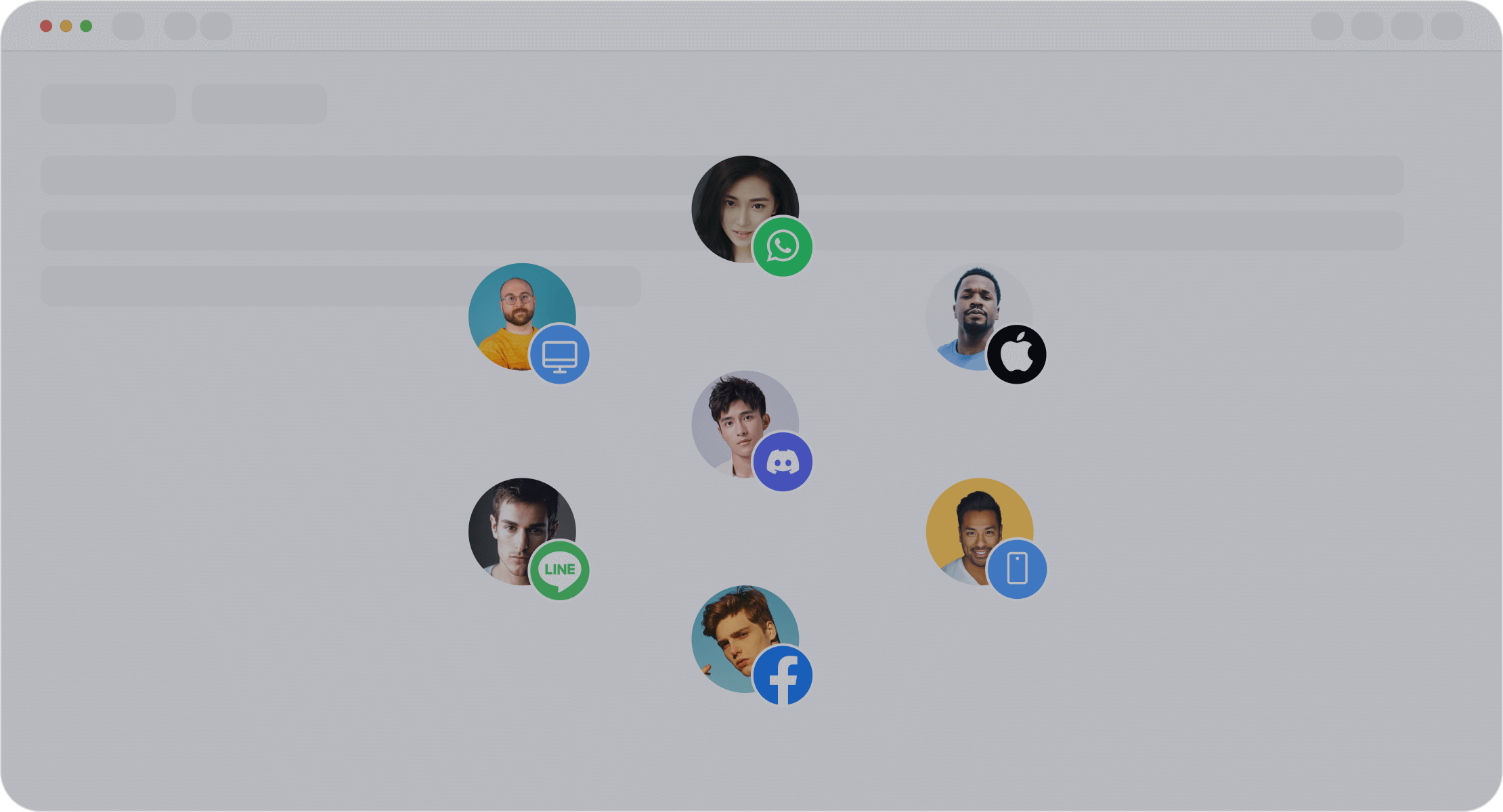
AI in E-commerce: Personalized Shopping Experiences
AI has completely transformed how you shop online. It creates personalized shopping experiences by analyzing your browsing habits, purchase history, and preferences. This means you get product recommendations that feel like they were made just for you.
For example, have you ever added an item to your cart and then received a discount offer for it? That’s AI personalization in action. It doesn’t just make shopping easier—it makes it more enjoyable. Businesses using AI personalization see impressive results:
| Statistic | Description |
|---|---|
| 49% of customers | Made impulse purchases based on personalized product recommendations. |
| 11% increase in AOV | AI recommendations boost average order value by 11%. |
| 4.35% improvement in cart abandonment | Personalized suggestions reduce cart abandonment rates. |
| 31% of revenue | Personalized recommendations drive up to 31% of online brands' revenue. |
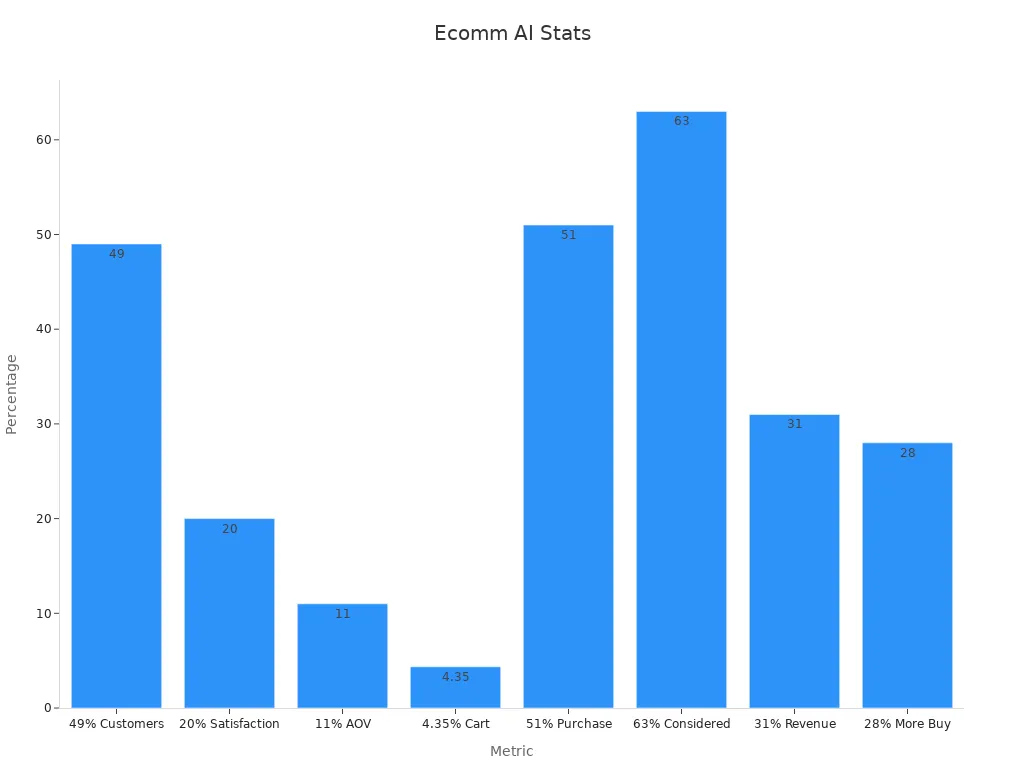
Sobot’s AI solutions take this to the next level. With tools like Live Chat, you can receive real-time product suggestions while browsing. This not only improves your shopping experience but also helps businesses increase sales and customer satisfaction.
AI-Powered Customer Support: Chatbots and Virtual Assistants
AI-powered chatbots and virtual assistants have revolutionized customer support. They’re available 24/7, providing quick responses and personalized solutions. Whether you’re asking about a product or need help with an order, these tools ensure you get the assistance you need without waiting.
Here’s why they’re so effective:
- They handle large volumes of interactions simultaneously, making them highly scalable.
- They analyze customer interactions to provide insights that help businesses improve their services.
For example, Sobot’s Chatbot uses AI to deliver human-like interactions. It can answer your questions, recommend products, and even guide you through complex issues. This not only saves time but also enhances your overall experience. Businesses using AI-powered support tools report higher customer satisfaction and operational efficiency.
| Aspect | Evidence |
|---|---|
| Scalability | AI-powered virtual assistants can handle a large volume of interactions simultaneously. |
| Operational Efficiency | They allow businesses to scale customer service without additional human resources. |
Success Stories: Michael Kors and Sobot Live Chat
Michael Kors, a global luxury fashion brand, is a shining example of how AI personalization can transform customer interactions. By implementing Sobot’s Live Chat and WhatsApp API, they unified their customer service channels and improved efficiency.
The results were remarkable:
- An 83% reduction in response time.
- A 95% customer satisfaction rate.
- A 20% increase in conversion rates.
Sobot’s AI-powered tools enabled Michael Kors to provide personalized services across multiple channels. For instance, agents could access customer data in real time, allowing them to offer tailored solutions. This not only enhanced the shopping experience but also strengthened customer loyalty.
Michael Kors’ success highlights the power of implementing AI personalization. With tools like Sobot Live Chat, businesses can deliver exceptional service and build lasting relationships with their customers.
AI in Entertainment: Tailored Content Delivery
Have you ever wondered how streaming platforms always seem to know what you want to watch next? That’s the magic of ai in entertainment. It analyzes your viewing habits, preferences, and even the time of day to deliver content that feels like it was made just for you. This isn’t just convenient—it’s transforming how you experience entertainment.
AI doesn’t just stop at recommendations. It optimizes promotional efforts by predicting what will grab your attention. For example, platforms can create personalized trailers or ads that resonate with specific audience segments. This approach not only boosts engagement but also makes you feel more connected to the content.
Take newsletters as another example. AI-powered tools can customize them for individual readers. At Echobox, this led to a 53% increase in open rates and a 42% rise in click-through rates. That’s a huge leap in keeping audiences engaged! And it doesn’t end there. AI tools like chatbots and interactive content make your experience even more immersive, ensuring you stick around longer.
Streaming services, gaming platforms, and even social media apps are using ai to tailor content delivery. Whether it’s suggesting a playlist, recommending a game, or curating a feed, AI ensures every interaction feels personal. This level of customization keeps you coming back for more.
So, the next time you binge-watch a series or discover a new favorite song, remember—ai is working behind the scenes to make it all happen.
Implementing AI Personalization in Your Business
Selecting AI Tools and Platforms
Choosing the right AI tools is the first step toward successful personalization. You need solutions that align with your business goals and customer needs. Start by evaluating tools based on their ability to improve conversion rates, engagement, and sales. For example, platforms that boost average order value by up to 300% or reduce data preprocessing efforts by 80% are worth considering.
| Metric | Impact on Personalization |
|---|---|
| Conversion Rates | Increased by about 50% |
| Customer Engagement | Significant improvement |
| Average Order Value | Sales surges of up to 300% |
| Data Preprocessing Effort | Up to 80% of total effort |
Sobot’s AI-powered solutions, like its Live Chat platform, excel in these areas. They offer omnichannel support, real-time analytics, and AI-driven personalization to help you deliver tailored experiences. Whether you’re in retail, gaming, or enterprise services, Sobot’s tools can transform how you interact with customers.
Tip: Focus on tools that simplify workflows and provide actionable insights. This ensures your team can implement personalization effectively without being overwhelmed.
Integrating Sobot Live Chat for Personalized Interactions
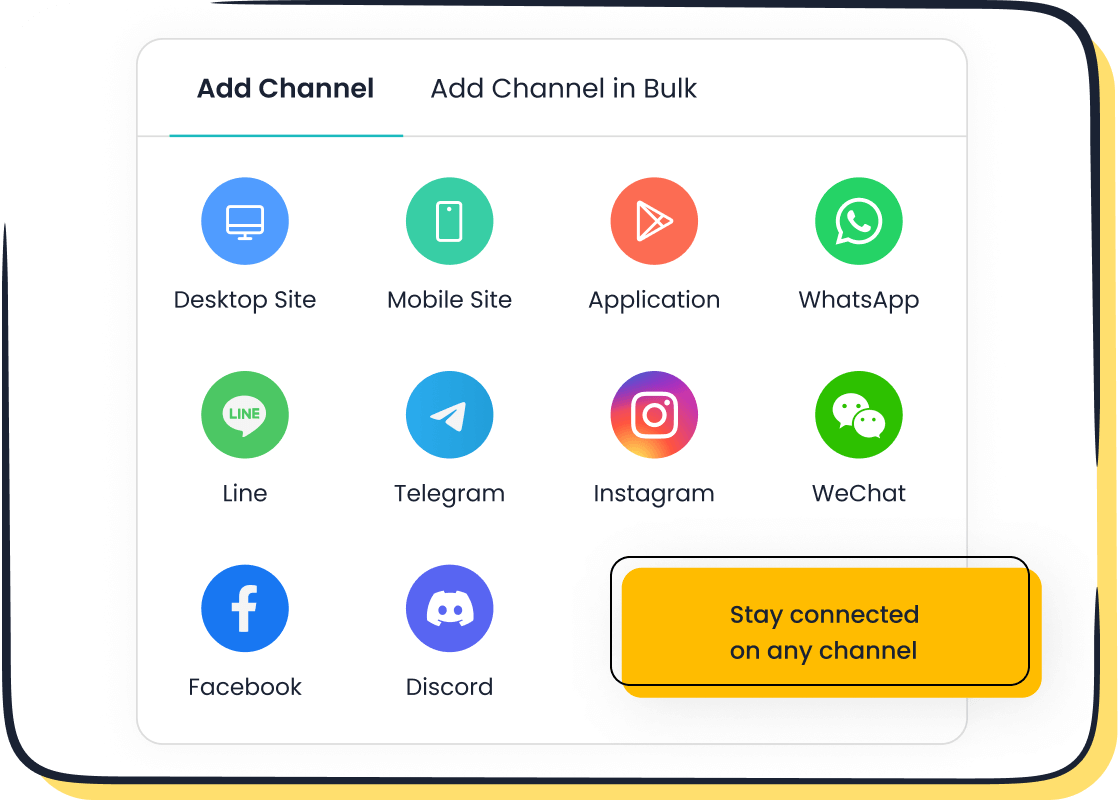
Integrating AI-powered personalization into your business doesn’t have to be complicated. Sobot Live Chat makes it seamless by unifying customer interactions across channels like WhatsApp, Instagram, and websites. This platform uses AI to segment customers, automate responses, and provide real-time recommendations.
Imagine a customer browsing your website and receiving tailored product suggestions instantly. Or chatting with an agent who already knows their preferences. Sobot Live Chat makes these scenarios possible. It also evaluates over 150 indicators to optimize service and improve satisfaction.
Businesses that integrate Sobot Live Chat see measurable results. For instance, Michael Kors achieved a 95% customer satisfaction rate and reduced response times by 83%. These outcomes highlight the power of AI-powered personalization in driving engagement and loyalty.
Example: Use Sobot’s customizable widgets to match your brand image and create a cohesive customer experience across all channels.
Training Teams to Leverage AI Effectively
AI-powered personalization is only as effective as the people using it. Training your team ensures they understand how to use AI tools to their full potential. Start with manageable elements, like focusing on a single campaign or audience. This avoids complexity and builds confidence.
| Best Practice Guidelines | Description |
|---|---|
| Start with manageable elements | Focus on a single page, audience, or campaign to avoid complexity. |
| Measure early results | Prove effectiveness in a high-priority area before scaling. |
| Secure buy-in for expansion | Build a case for further investment based on initial successes. |
| Scale gradually | Expand personalization efforts as tangible results are observed. |
Sobot provides resources and training to help your team master its AI tools. For example, its Live Chat platform includes built-in analytics and AI copilots that assist agents in crafting personalized responses. This makes it easier for your team to deliver exceptional service.
Success Story: Businesses like Luisaviaroma.com saw a 900% increase in automated email revenue after implementing AI personalization.
By equipping your team with the right knowledge, you’ll maximize the impact of AI-driven personalization and create meaningful customer experiences.
Measuring the Impact of AI on Customer Experience
How do you know if AI is truly improving your customer experience? Measuring its impact is key to understanding whether your efforts are paying off. By tracking specific metrics, you can see how AI tools are transforming interactions and driving results.
Key Performance Indicators to Track
To evaluate AI’s effectiveness, focus on these essential metrics:
- Customer Satisfaction: Tracks how happy customers are after interacting with AI-powered systems.
- Customer Effort Score (CES): Measures how easy it is for customers to achieve their goals using AI tools.
- Task Success Rate: Shows the percentage of tasks completed successfully, highlighting AI’s efficiency.
- Time on Task: Indicates how quickly customers complete tasks, with shorter times reflecting better performance.
- User Retention Rate: Tracks the percentage of users who continue using AI systems, showing satisfaction levels.
- Latency: Measures AI’s response time, with lower latency improving user experience.
- Average Handling Time (AHT): Assesses how quickly customer inquiries are resolved, showcasing AI’s speed.
- Response Time: Tracks how fast AI responds to customer inquiries, enhancing satisfaction.
- Ticket Volume Handled: Analyzes the number of customer tickets managed, showing AI’s scalability.
- Resolved on Automation Rate (ROAR): Measures the percentage of inquiries resolved without human intervention.
- Customer Satisfaction (CSAT): Evaluates service quality based on customer feedback.
Why These Metrics Matter
These metrics help you understand how AI impacts your business. For example, shorter response times and higher task success rates mean customers get faster and more accurate solutions. Metrics like CES and CSAT reveal whether AI tools make interactions easier and more enjoyable.
Using AI to Optimize Metrics
Sobot’s AI-powered solutions make tracking and improving these metrics simple. For instance, its Live Chat platform reduces Average Handling Time by automating responses and providing real-time insights. It also boosts Customer Satisfaction by delivering personalized interactions across multiple channels.
By focusing on these metrics, you’ll gain a clear picture of how AI enhances customer experience. This data-driven approach ensures you’re meeting customer needs while improving efficiency.
Tip: Regularly review these metrics to identify areas for improvement and maximize the benefits of AI tools.
Ethical Considerations in AI-Driven Personalization
Ensuring Data Privacy and Security
When it comes to AI-driven personalization, protecting your data should always be a top priority. AI systems rely on vast amounts of personal information to deliver tailored experiences, but this also makes them vulnerable to breaches. High-profile incidents, like the 2021 breach of an AI-powered healthcare platform that exposed millions of patient records, show how critical it is to secure these systems. Another example is the DeepSeek breach, where over a million records were compromised due to poor configurations.
To keep your data safe, businesses must adopt proactive strategies. End-to-end encryption is essential for securing data both in transit and at rest. This ensures that sensitive information remains protected, even if a system is compromised. Compliance with regulations like GDPR and CCPA also plays a vital role in safeguarding your privacy. These laws dictate how personal data should be handled, ensuring ethical practices in AI-driven personalization.
Tip: Always look for companies that prioritize data security and comply with privacy regulations when using AI-powered tools.
Transparency in AI Usage
Would you trust a system you don’t understand? Transparency in AI is key to building trust and encouraging users to share their data. Studies show that when companies explain how AI makes decisions, users feel more engaged and confident. For instance, research by Yeomans et al. found that clear explanations of AI processes positively impact user engagement.
However, a lack of transparency can lead to skepticism. People may prefer human advisors over AI if they feel the system is too opaque. To address this, businesses should provide clear, easy-to-understand explanations of how AI works. This could include sharing how recommendations are generated or why certain decisions are made.
| Study | Findings |
|---|---|
| Herlocker et al. (2000) | Lack of transparency in AI systems leads to user aversion. |
| Millecamp et al. (2019) | Transparency enhances user trust and willingness to share data. |
| Yeomans et al. (2019) | Explanations of AI decision-making improve user engagement. |
Note: Transparency isn’t just about ethics—it’s also a smart business strategy that fosters loyalty.
Avoiding Bias in AI Algorithms
AI systems are only as good as the data they’re trained on. If the data contains biases, the AI will reflect them, leading to unfair outcomes. For example, biased algorithms might favor certain groups over others, creating a negative experience for users.
To reduce bias, businesses should focus on inclusive data collection. This means gathering information from diverse groups to ensure fairness. Developing bias-aware algorithms and forming diverse AI development teams can also help identify and address potential issues. Regular monitoring and evaluation are crucial for catching biases early and making necessary adjustments.
| Bias Mitigation Strategy | Description |
|---|---|
| Inclusive Data Collection | Gathering data from diverse and underrepresented groups. |
| Bias-Aware Algorithms | Developing algorithms that address potential biases proactively. |
| Diversity in AI Development | Forming teams with varied backgrounds to identify and mitigate bias. |
| Continuous Monitoring | Regularly assessing AI systems to detect and correct biases. |
By taking these steps, businesses can create AI systems that are fair, ethical, and effective.
Emoji Insight: 🌍 Inclusive AI benefits everyone by ensuring fairness and equality in personalized experiences.
Balancing Personalization with Customer Consent
Personalization powered by AI can feel like magic, but it’s important to remember that it relies on customer data. To build trust, you need to ensure customers feel in control of how their information is used. So, how can you strike the right balance between personalization and consent?
First, transparency is key. Let your customers know exactly how their data will be used. Whether it’s for tailored recommendations or dynamic messaging, they should understand the purpose behind it. This isn’t just about ticking a box—it’s about creating a relationship built on honesty.
Next, give customers control over their data. Allow them to access, correct, or even delete their information if they choose. This level of control not only aligns with ethical practices but also fosters trust. When customers feel empowered, they’re more likely to engage with your AI-driven solutions.
Here’s what you can do to maintain consent while personalizing experiences:
- Inform customers about how their data will be used.
- Provide clear options for opting in or out of data collection.
- Offer tools that let them manage their data easily.
For example, Sobot’s AI tools prioritize ethical data practices. They ensure customers are informed and have control over their information. This approach not only enhances personalization but also builds long-term loyalty.
Remember, personalization should never feel intrusive. It should feel like a helpful assistant, not an overbearing presence. By respecting customer consent, you can create experiences that are both meaningful and ethical.
Tip: Customers are more likely to share their data when they trust your brand. Transparency and control are the foundation of that trust.
AI is reshaping how you connect with customers, making every interaction more meaningful and efficient. By 2025, 95% of customer interactions will involve AI, and businesses using AI personalization could see revenue grow by up to 15%. Tools like Sobot Live Chat help you deliver tailored experiences, boosting satisfaction and loyalty. As AI evolves, focusing on ethical practices like data privacy and transparency will build trust and long-term relationships. Embracing AI today ensures you stay ahead in delivering exceptional customer experiences tomorrow.
| Statistic Description | Value | Source |
|---|---|---|
| AI-powered customer interactions | 95% by 2025 | AI Business |
| Revenue increase from AI personalization | Up to 15% | McKinsey |
| Business confidence in AI | 64% believe it enhances relationships | Tidio |
Tip: Start leveraging AI-powered tools like Sobot to create personalized, scalable, and ethical customer interactions.
FAQ
What is AI personalization, and how does it benefit your business?
AI personalization uses data to create tailored experiences for your customers. It predicts preferences and delivers relevant recommendations. This boosts engagement, satisfaction, and loyalty, helping your business grow.
Tip: Personalized interactions can increase customer retention by up to 25%.
How does Sobot Live Chat improve customer interactions?
Sobot Live Chat unifies conversations across channels like WhatsApp and Instagram. It uses AI to segment customers, automate responses, and provide real-time recommendations. This makes every interaction faster and more meaningful.
Emoji Insight: 🚀 Businesses using Sobot Live Chat see a 38% gain in conversion rates.
Is AI-powered personalization secure?
Yes, AI tools like Sobot prioritize data security. They use encryption and comply with regulations like GDPR to protect customer information. You can trust that your data stays safe.
Note: Always choose AI solutions with strong privacy measures.
Can AI tools replace human customer service agents?
AI tools enhance human agents rather than replace them. They automate repetitive tasks and suggest solutions, allowing agents to focus on complex issues. This creates a better experience for your customers.
Example: Agents using AI handle 13.8% more inquiries per hour.
How do you measure the success of AI personalization?
Track metrics like Customer Satisfaction (CSAT), Average Handling Time (AHT), and Churn Rate. These show how AI improves efficiency and customer experience.
| Metric | What It Measures |
|---|---|
| CSAT | Customer happiness |
| AHT | Speed of inquiry resolution |
| Churn Rate | Percentage of customers lost |
Tip: Regularly review these metrics to optimize your AI strategy.
See Also
Enhancing Efficiency With AI-Driven Customer Service Solutions
Increasing Customer Satisfaction Through E-commerce Chatbots
Transforming Customer Support With AI Service Agents
